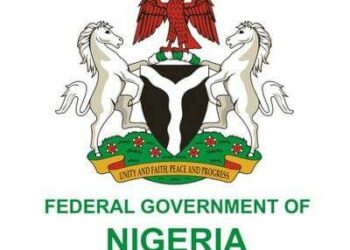Foreign scholars under the Federal Government’s Bilateral Educational Agreement (BEA) Scholarship expressed their frustration on Wednesday over unexpected cuts in their allowances by the Federal Scholarship Board.
Several affected scholars and parents in Abuja voiced their concerns about the government’s decision, highlighting that the government had not released their allowances for more than 13 months, forcing them to find alternative means of survival in foreign countries.
The BEA scholarship facilitates educational exchange between Nigeria and partnering countries, overseen by the Federal Scholarship Board under the Federal Ministry of Education.
Reports indicate that the Federal Ministry of Education announced a reduction in allowances for foreign scholars stranded in countries like Russia, Morocco, and Algeria, citing economic crises as the reason.
This decision was detailed in a memo signed by the Director of the Federal Scholarship Board, Ndajiwo H.A., on behalf of the Minister of Education, Prof. Tahir Mamman.
The memo, dated July 23, 2024, addressed to the scholars’ association, stated, “After due consultations, the Federal Scholarship Board has come up with adjustments in line with budgetary provisions in the payment of BEA scholars’ supplementation allowances for the 2024 academic year.”
Ronald Donald, one of the affected scholars, explained, “Firstly, students have stayed 13 months without stipends, just promises upon promises.
Now, the only thing the FSB could come up with is to reduce the stipends. Let me give you an idea of what living in Russia and Morocco looks like.
In Russia, a student needs a minimum of $300 to survive. The bus fares are expensive, and the hostel prices are up. Bread used to be sold for 70 rubles is now 120 rubles.
In Morocco, the students don’t have hostels provided for them. As such, they rent apartments at a startling price of $200 a month.”
He added that in Russia, the embassy provides loans to students in difficulty, with the expectation that the money will be repaid once the FSB disburses the allowances.
Another student, who wished to remain anonymous due to fear of repremands, noted that some students had taken loans to fund their studies.
“We were under the agreement to be paid $500 per month, and we have not been paid since June 2023, which has resulted in students engaging in exploitative illegal labour such as washing plates and construction.
“I personally have worked in a soap warehouse and restaurant for 127 and 14 hours at a stretch, respectively, with reduced pay against the agreement and host country’s visa.
“A few months ago, after several agitations and representations by our parents, our parents were encouraged by the FG to take loans to the tune of millions because of the exchange rate and the rising cost of living in our host countries to send to us for our survival with the promise that the situation will be sorted out and our stipends will be paid.
“Suddenly, yesterday they released a memo slashing our stipends by 56%. How are we to pay back the loans or even survive?”
The student revealed that some students had resorted to borrowing from loan sharks.
“Yes, several students took loans from even loan sharks because no one in this economy would loan millions to a student that doesn’t have a definite payback period or collateral,” he said.
A parent, speaking anonymously, provided a breakdown of the reduced allowances: “Each student now gets $3090 instead of $6450.
“It’s only the medical students who get an extra $500 to make theirs $3590. Seeing that only supplementation was touched, that’s a 56% decrease.”
 National Telescope national telescope newspaper
National Telescope national telescope newspaper



